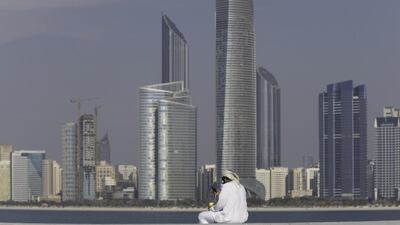A few weeks ago, I noted that many long-term expatriates, when they finally leave, can be effective “ambassadors” for the UAE, reaching out to their communities at home to talk about the country in ways that no formal government programme can ever emulate. When people talk about their own experiences here at a personal level, there'll be occasional grumbles, of course, some minor and some less so, but that simply serves to make the views sound more authentic, and for any praise that they may offer of life in the Emirates to sound more convincing. Nowhere is perfect and the UAE, more so than many other countries, is continually striving for improvement.
If, however, members of the UAE's expatriate communities are to be able to talk authoritatively about the country when they're at home, whether as returning residents or as visitors, many need to understand more about the UAE and to experience it more. Sadly, and this is no secret to anyone, many expatriates live in a bubble, often largely confined to members of their own community, rarely engaging in any significant way, either with the Emirates or with Emiratis, in terms of the country's culture, beliefs, traditions and heritage.
A number of voluntary community groups, both formally and informally, do make an effort to brief their members about a range of topics related to the country.
Last weekend, for example, members of the UAE's natural history groups gathered in Al Ain for an annual event that involved outings to various destinations, to look at the oases, heritage sites, wildlife and so on. Several institutions, such as universities, offer occasional evening lectures which seek to shed light on various aspects of the Emirates. These, though, are often rather academic and aren't really pitched at the general public.
It is noteworthy, though, that many of the efforts that are being made come from the expatriate communities themselves, rather than from within the Emirati community, whether at an official or unofficial level.
In Dubai, the Sheikh Mohammed bin Rashid Centre for Cultural Understanding does sterling work in reaching out to expatriate communities to explain the role of Islam in UAE society, something of enormous importance at a time when fanaticism and terrorism have had such an impact in affecting the way in which many non-Muslims look upon the faith. Countering that is of fundamental importance. There is, however, scope for much more to be done.
A few years ago, I was invited to give a couple of lectures about the UAE to the expatriate staff of a large foreign company that had won some major contracts here. To carry them out, they needed to bring in a number of expatriate managers and their families, none of whom knew anything at all about the UAE.
The company's bosses felt it was important that they were given at least a preliminary briefing – something about the history and culture, some simple guidelines on do's and don't's, a few suggestions of parts of the country that they might consider visiting.
Most of the better companies and organisations already make efforts of this kind, which benefit them, as well as their employees and families, to help them adjust to their new life here. They rarely get much in the way of help to do so, however.
There is, surely, scope for Emirati institutions, official or otherwise, to devise a more wide-ranging and coherent programme of initiatives that will allow them to work together with employers to enhance the cultural awareness of their expatriate employees.
The UAE's history and heritage, Islam, cultural traditions, including the why's and wherefore's of dress codes – all of these might well be of interest to expatriates, whether newly arrived or those who have been here longer but who are still living primarily in expatriate bubbles.
Exposure through the media has its uses, but a more personal engagement can be so much more effective.
Peter Hellyer is a consultant specialising in the UAE’s history and culture


